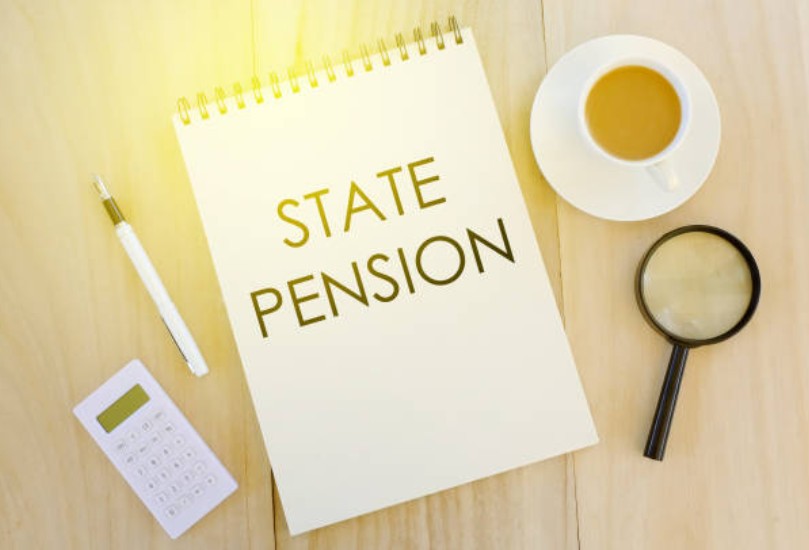In the UK, your right to a State Pension is closely linked to your National Insurance (NI) contributions. But what happens if you’ve never paid into the system? Many people find themselves asking: “I have never paid National Insurance, will I get a pension?”
This is a common question, particularly among individuals who have spent long periods out of the workforce due to childcare, caregiving, illness, or living abroad. In this article, we will break down the eligibility rules, what options are available if you haven’t paid NI, and the possible ways you can still secure financial support during retirement.
Whether you’re approaching pension age or just planning, understanding how the State Pension works is key to ensuring financial stability in later life.
What is the UK State Pension and How Is It Funded?

The UK State Pension is a regular payment from the government that you can receive once you reach State Pension age, which is currently 66 for both men and women. This age will gradually rise to 67 between 2026 and 2028.
Unlike private pensions, the State Pension is not funded by direct savings or investments. It is funded through National Insurance contributions collected during your working life. These contributions build your entitlement to receive pension payments later.
There are two primary types of State Pension:
- Basic State Pension: For people who reached State Pension age before 6 April 2016.
- New State Pension: For those who reach State Pension age on or after 6 April 2016.
Under the new system, to receive any State Pension at all, you need at least 10 qualifying years on your NI record. To receive the full State Pension, which is currently around £221.20 per week, you need 35 qualifying years.
What Counts as a Qualifying Year for National Insurance?
A qualifying year is any tax year during which you have either paid National Insurance or received credits that count toward your NI record. You can earn a qualifying year in the following ways:
- Working and earning above the Lower Earnings Limit (currently £6,396 per year) and paying NI contributions
- Receiving National Insurance credits, which are automatically applied if you’re claiming certain benefits such as Universal Credit, Jobseeker’s Allowance, or Carer’s Allowance
- Claiming Child Benefit for a child under the age of 12
- Paying voluntary National Insurance contributions
If you have 10 or more qualifying years, you can receive a proportion of the State Pension. If you have fewer than 10 years and have not paid into the system in other ways, you won’t be eligible for any State Pension under the current rules.
What If I Have Never Paid National Insurance?
If you have never worked in the UK or earned below the NI threshold and did not receive credits or make voluntary payments, then you may not have any qualifying years on your NI record.
This means:
- You will not qualify for the State Pension at all
- You will need to rely on other forms of retirement income, such as private pensions, savings, or means-tested benefits like Pension Credit
However, not paying NI through employment does not always mean you have zero qualifying years. Many people, especially those involved in unpaid care roles, unknowingly build up credits that count toward their pension entitlement.
It’s important to check your NI record using the government’s online service at www.gov.uk.
I Have Never Paid National Insurance Will I Get a Pension?
Yes, you may still qualify for a State Pension even if you have never worked in paid employment.
There are several ways people can build up qualifying years without directly paying National Insurance:
Caring for Children

If you’ve been the main carer of a child and claimed Child Benefit, you may have received NI credits automatically. This can provide up to 12 years of credits that count toward your State Pension.
Caring for Adults
If you’ve cared for someone who is ill, elderly, or disabled for 20 or more hours a week, you may be eligible for Carer’s Credit, even if you’re not receiving Carer’s Allowance.
Receiving Benefits
If you’ve claimed Jobseeker’s Allowance, Employment and Support Allowance (ESA), or Universal Credit, you may have received NI credits during those periods.
Being in Education or Training
Young people under 20 in approved education or training may be entitled to credits in some cases.
The key is to review your past status and whether any of these scenarios might apply. Credits can add significantly to your NI record, often without you even realising it.
Can I Buy National Insurance Years?
Yes, you can buy voluntary NI contributions, known as Class 3 contributions, to fill gaps in your record.
This is often a smart way to boost your pension entitlement, especially if you are close to the 10-year threshold or wish to increase your payout closer to the full amount.
As of 2025:
- The cost of a Class 3 contribution is approximately £17.45 per week, or around £907 per year
- Each additional year could add £300–£350 annually to your pension, for life
You can normally buy up to 6 years of contributions going back, although there are temporary rules in place (until April 2025) allowing people to pay for gaps dating as far back as 2006 if they qualify.
Before making voluntary payments, it’s essential to:
- Check your current NI record and pension forecast
- Confirm that buying years will increase your pension
- Ensure you’re not entitled to NI credits you may have missed
You can contact the Future Pension Centre for personalised advice before paying.
What If I Lived or Worked Abroad?
If you have lived or worked in another country, you may be able to count those years toward your UK pension entitlement.
The UK has reciprocal social security agreements with many countries, including:
- European Union (for years worked before Brexit)
- Canada
- Australia
- New Zealand
- United States
- Several Caribbean nations
These agreements may allow you to:
- Use qualifying years from another country to reach the 10-year UK minimum
- Receive two separate pensions: one from the UK and one from abroad
You should contact HMRC and the relevant foreign pensions office to understand how your overseas record interacts with UK State Pension rules.
Can I Get a Pension Through My Spouse or Civil Partner?

This depends largely on when you reach State Pension age.
If You Reached State Pension Age Before 6 April 2016
- You may qualify for a basic State Pension based on your spouse’s NI contributions
- Widows, widowers, or divorced people may inherit part of their spouse’s pension entitlement
If You Reached State Pension Age After 6 April 2016
- The new State Pension is based solely on your contributions and credits
- You cannot claim or inherit your partner’s pension (with a few exceptions involving protected payments)
However, in some cases you may still receive Bereavement Support Payments or other benefits.
What Can I Do If I’m Not Eligible for a Pension?
If you don’t qualify for a State Pension, you may still be entitled to other forms of support when you reach retirement age.
Pension Credit
This is a means-tested benefit for people over State Pension age with low income. In 2025:
- A single person with a weekly income under £218.15 may qualify
- Couples with a combined income under £332.95 may also be eligible
Pension Credit can unlock other benefits, such as:
- Free TV licence for over-75s
- Council Tax Reduction
- Free NHS dental treatment and prescriptions
- Cold Weather and Winter Fuel Payments
Housing Benefit and Local Support

If you are renting and on a low income, Housing Benefit may help cover your rent. Local authorities may also provide Council Tax Support.
What Should I Do Next?
If you’re unsure about your entitlement, here’s a suggested action plan:
- Check your NI record at gov.uk to see how many qualifying years you have
- Get a State Pension forecast to estimate your entitlement
- Consider making voluntary contributions to fill in missing years
- Apply for NI credits if you’ve missed any eligible periods
- Explore benefit entitlements like Pension Credit if you don’t qualify for a State Pension
For more help, contact:
- HMRC National Insurance helpline
- Future Pension Centre
- Citizens Advice Bureau
Final Thoughts: Will I Get a Pension If I’ve Never Paid NI?
If you’ve never paid National Insurance and have no credits or qualifying years, then under current UK rules, you won’t be eligible for the State Pension.
However, it’s never too late to investigate:
- Whether you qualify for automatic credits
- Whether voluntary contributions would help
- Whether you may be eligible for Pension Credit or other support
Understanding your NI history and pension status early gives you the best chance to plan and prepare for a secure and supported retirement.

Leave a Reply